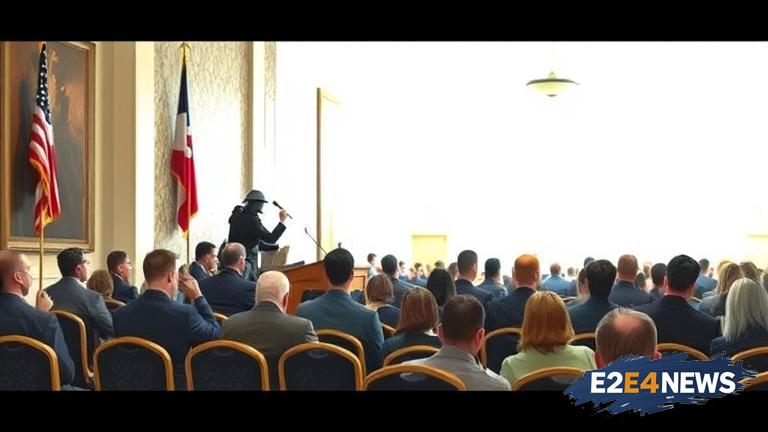In a recent turn of events, Texas House Republicans have voted against imposing retroactive punishments on Democrats who broke quorum earlier in the legislative session. This decision has sparked a heated debate on the procedures and rules governing the Texas House of Representatives. The quorum break, which occurred when Democrats walked out of the chamber to prevent a vote on a contentious voting bill, has been a point of contention between the two parties. Republicans have argued that the walkout was a dereliction of duty and an attempt to subvert the democratic process, while Democrats have maintained that it was a necessary measure to protect the rights of their constituents. The vote against retroactive punishments has been seen as a significant development in the ongoing struggle between the two parties. It is worth noting that the Texas House of Representatives has a long history of partisan politics, with both parties often finding themselves at odds over key issues. The quorum break has been a major point of contention, with Republicans seeking to impose penalties on the Democrats who participated. However, the vote against retroactive punishments suggests that Republicans may be seeking to move forward and focus on other legislative priorities. Despite this, the issue is likely to continue to be a point of debate and contention in the coming weeks and months. The Texas House of Representatives is composed of 150 members, with Republicans currently holding a majority of 83 seats. The Democratic Party, on the other hand, holds 67 seats. The quorum break has highlighted the deep divisions between the two parties, with each side accusing the other of playing politics and undermining the democratic process. The voting bill, which was the subject of the quorum break, has been a major point of contention between the two parties. Republicans have argued that the bill is necessary to prevent voter fraud and ensure the integrity of the electoral process, while Democrats have maintained that it is an attempt to suppress the vote and disenfranchise certain groups. The debate over the voting bill has been ongoing for several months, with both parties engaging in intense negotiations and lobbying efforts. The quorum break has added a new layer of complexity to the debate, with each side seeking to gain the upper hand. The Texas House of Representatives has a number of procedures and rules in place to govern its operations, including the requirement that a quorum be present for votes to be held. The quorum break has raised questions about the effectiveness of these procedures and the ability of the House to function in the face of partisan divisions. Despite the challenges, the Texas House of Representatives remains committed to fulfilling its legislative duties and representing the interests of the people of Texas. The vote against retroactive punishments is a significant development in this regard, as it suggests that Republicans are seeking to move forward and focus on other legislative priorities. However, the issue is likely to continue to be a point of debate and contention in the coming weeks and months. The Texas House of Representatives is expected to continue debating and voting on a number of key issues, including the voting bill and other legislative priorities. The quorum break has highlighted the importance of finding common ground and working across party lines to achieve legislative goals. It remains to be seen how the issue will be resolved, but one thing is certain – the Texas House of Representatives will continue to be a focal point of partisan politics and debate in the coming weeks and months. The people of Texas will be watching closely as the situation unfolds, and it is likely that the outcome will have significant implications for the state’s legislative landscape. In conclusion, the vote against retroactive punishments for quorum breakers is a significant development in the ongoing struggle between Texas House Republicans and Democrats. The issue has highlighted the deep divisions between the two parties and raised questions about the effectiveness of the House’s procedures and rules. As the situation continues to unfold, it is likely that the Texas House of Representatives will remain a focal point of partisan politics and debate.
